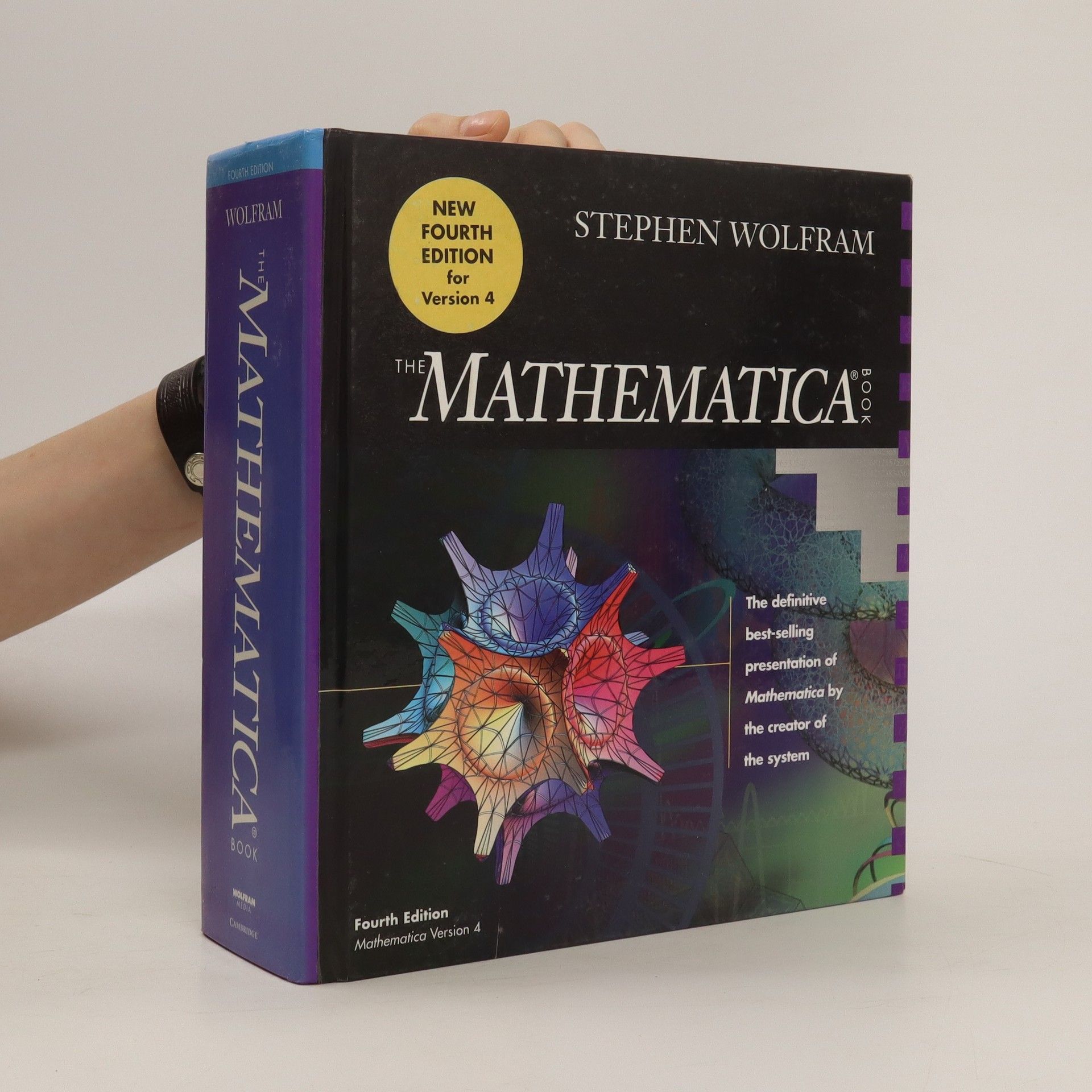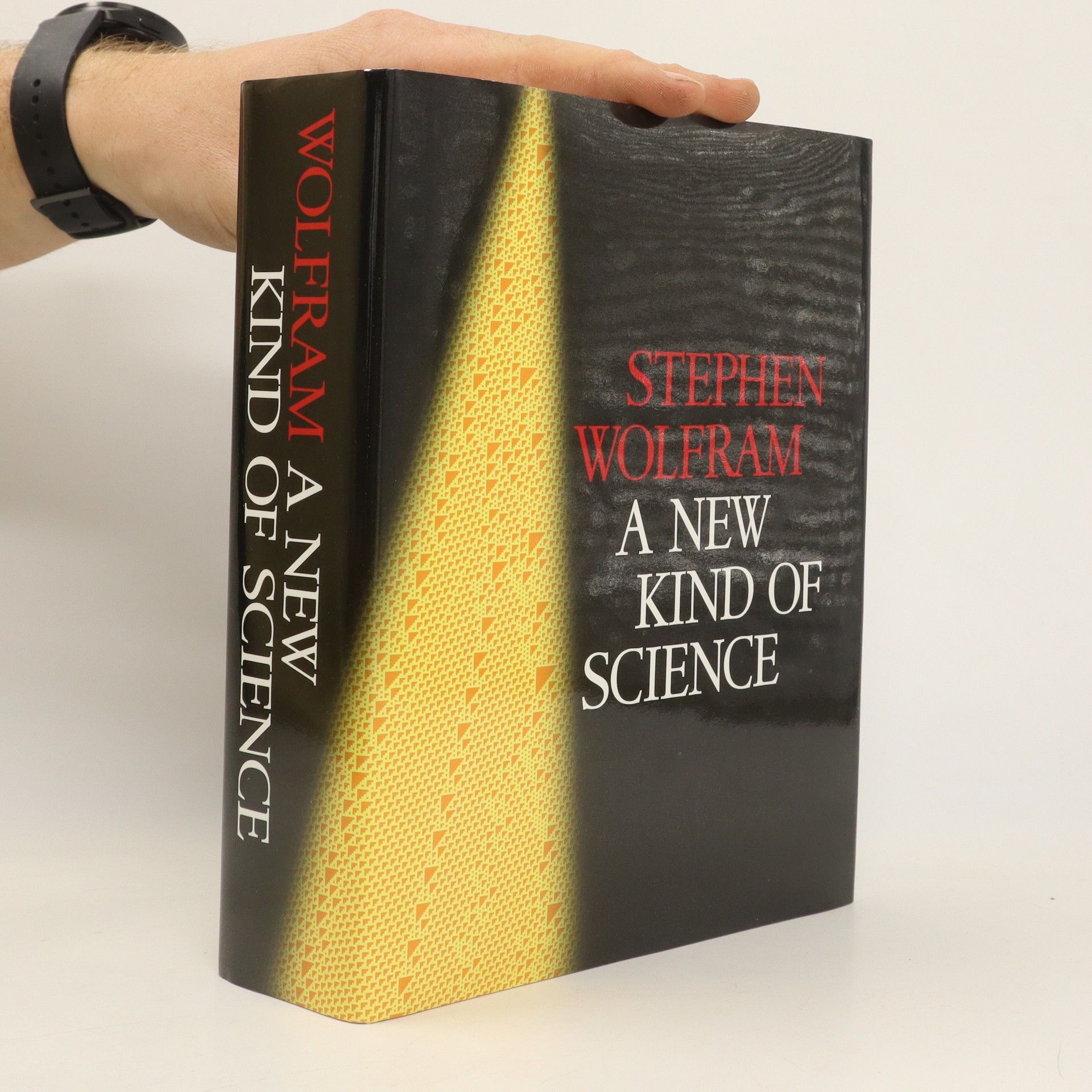The book explores the fascinating history of predicting solar eclipses, culminating in the upcoming event on April 8, 2024. Stephen Wolfram details a journey spanning over two millennia, showcasing how advancements in science, mathematics, and computation have enabled precise predictions. It highlights significant contributions from renowned mathematicians and physicists, the development of early computing, and the impact on space technology. The narrative emphasizes the evolution of understanding eclipses, a phenomenon that has captivated humanity throughout the ages.
Stephen Wolfram Book order (chronological)
Stephen Wolfram is a visionary thinker known for his profound exploration into the nature of computation and its potential to reshape our understanding of the world. His work centers on uncovering simple, universal principles that govern complexity in both natural and artificial systems. Wolfram investigates how unexpected and far-reaching outcomes can emerge from these fundamental rules, revealing an elegant structure underlying diverse phenomena. His approach encourages a re-evaluation of scientific foundations and the discovery of hidden connections across seemingly unrelated domains.






Exploring the enigmatic Second Law of thermodynamics, Stephen Wolfram delves into its historical context and significance, revealing how it emerges from computational processes. Drawing on recent advancements in physics, he presents a clear resolution to its mysteries, linking the law to our role as observers. With a personal narrative spanning five decades, the book is richly illustrated and offers insights into the foundational principles of science, making it accessible to anyone curious about this pivotal concept.
An Elementary Introduction to the Wolfram Language
- 376 pages
- 14 hours of reading
As the world's first and only full-scale computational language, the Wolfram Language represents a milestone in the development of programming languages that makes leading-edge computation accessible to everyone. Unique in its approach of building in vast knowledge and automation, the Wolfram Language scales from a single line of easy-to-understand interactive code to million-line production systems.This book provides an elementary introduction to the Wolfram Language and modern computational thinking. It assumes no prior knowledge of programming, and is suitable for both technical and non-technical college and middle-to-high-school students as well as anyone with an interest in the latest technology and its practical application.
Das Geheimnis hinter ChatGPT
Wie die KI arbeitet und warum sie funktioniert
What Is ChatGPT Doing ... and Why Does It Work?
- 112 pages
- 4 hours of reading
Nobody expected this--not even its creators: ChatGPT has burst onto the scene as an AI capable of writing at a convincingly human level. But how does it really work? What's going on inside its "AI mind"? In this short book, prominent scientist and computation pioneer Stephen Wolfram provides a readable and engaging explanation that draws on his decades-long unique experience at the frontiers of science and technology. Find out how the success of ChatGPT brings together the latest neural net technology with foundational questions about language and human thought posed by Aristotle more than two thousand years ago.
Twenty Years of a New Kind of Science
- 384 pages
- 14 hours of reading
When Stephen Wolfram's groundbreaking A New Kind of Science was published in 2002, its exploration and analysis of the computational universe of simple programs launched a scientific revolution. Twenty years later, the ideas and results of the book have found countless applications across science, technology and elsewhere—including the recent Wolfram Physics Project and its breakthrough in fundamental physics—and the book has indeed spawned what can only be described as a new kind of science.Here Wolfram reflects on the first two decades of A New Kind of Science, discussing some of the major implications that have emerged so far, as well as his far-reaching new thinking building on the conceptual framework developed in A New Kind of Science. Written in Wolfram's popular and accessible style, the book provides a window into one of the most vibrant intellectual developments of our time.Recognizing A New Kind of Science's significance not only in science but also in the arts, the book includes a gallery of pieces created over the past 20 years by artists inspired by the book.
Combinators
- 368 pages
- 13 hours of reading
"Combinators have inspired ideas about computation ever since they were first invented in 1920, and in this innovative book, Stephen Wolfram provides a modern view of combinators and their significance. Informed by his work on the computational universe of possible programs and on computational language design, Wolfram explains new and existing ideas about combinators with unique clarity and stunning visualizations, as well as provides insights on their historical connections and the curious story of Moses Schèonfinkel, inventor of combinators. Though invented well before Turing machines, combinators have often been viewed as an inaccessibly abstract approach to computation. This book brings them to life as never before in a thought-provoking and broadly accessible exposition of interest across mathematics and computer science, as well as to those concerned with the foundations of formal and computational thinking, and with the history of ideas"--
A Project to Find the Fundamental Theory of Physics
- 816 pages
- 29 hours of reading
Released alongside the launch of the Wolfram Physics Project, this book provides a unique opportunity to learn about a historic initiative in science right as it is happening. The Wolfram Physics Project is a bold effort to use breakthrough new ideas and the latest in physics, mathematics and computation to find the fundamental theory of physics, often viewed as the ultimate goal in all of science. Written with Stephen Wolfram's characteristic expositional flair, the book includes both an accessible introduction to the project and its background, as well as core technical documents, and breathtaking visualizations that bring to life a dramatic new understanding of how our universe works.
Das Ende der Gleichungen?. Ein Dialog mit Dietmar Dath.
- 120 pages
- 5 hours of reading
Stephen Wolfram diskutiert die Auswirkungen der Mathematisierung auf die Wissenschaft und schlägt vor, Naturvorgänge eher als Computerprogramme denn als Differentialgleichungen zu betrachten. Im Gespräch mit Dietmar Dath erläutert er seine Entdeckungen und deren Bedeutung für verschiedene Disziplinen wie Evolutionsbiologie und Kognitionsforschung.
Starting from a collection of simple computer experiments—illustrated in the book by striking computer graphics—Stephen Wolfram shows how their unexpected results force a whole new way of looking at the operation of our universe.Wolfram uses his approach to tackle a remarkable array of fundamental problems in science, from the origins of apparent randomness in physical systems, to the development of complexity in biology, the ultimate scope and limitations of mathematics, the possibility of a truly fundamental theory of physics, the interplay between free will and determinism, and the character of intelligence in the universe.


